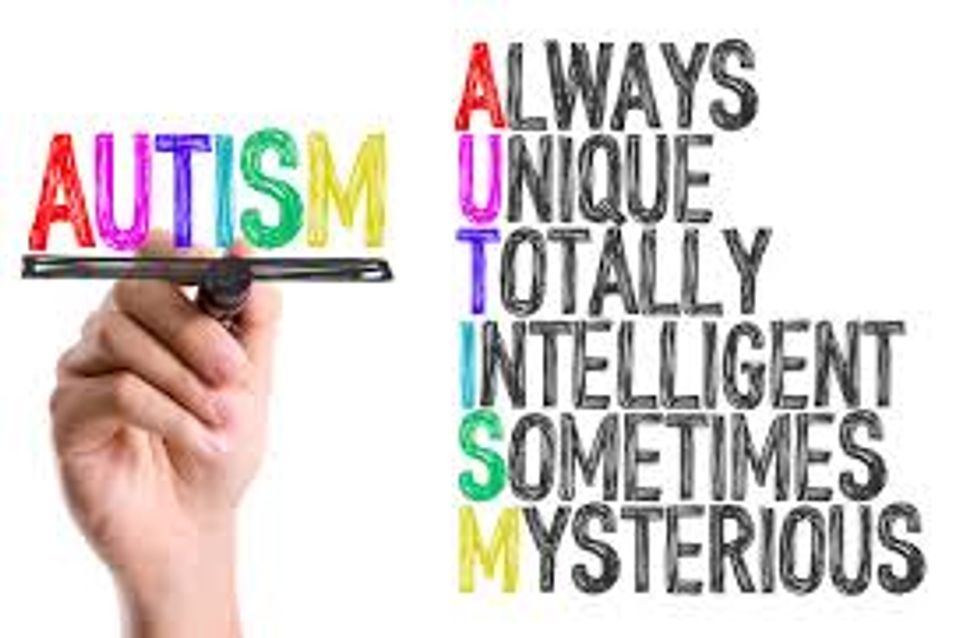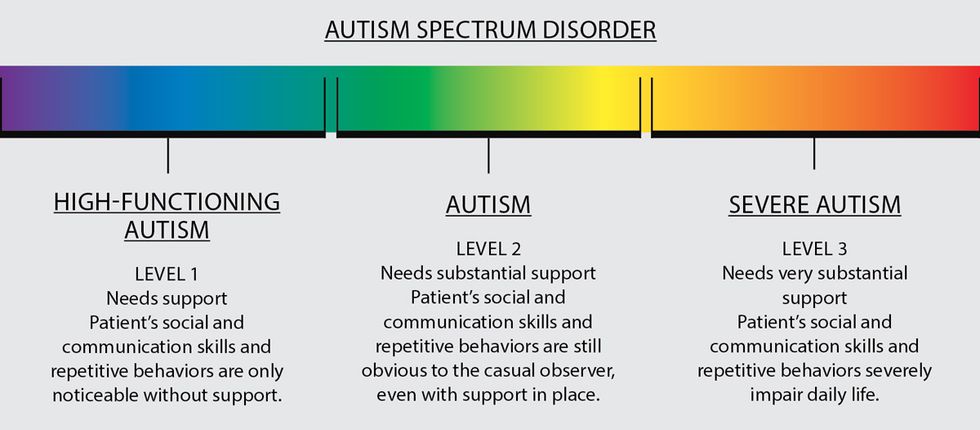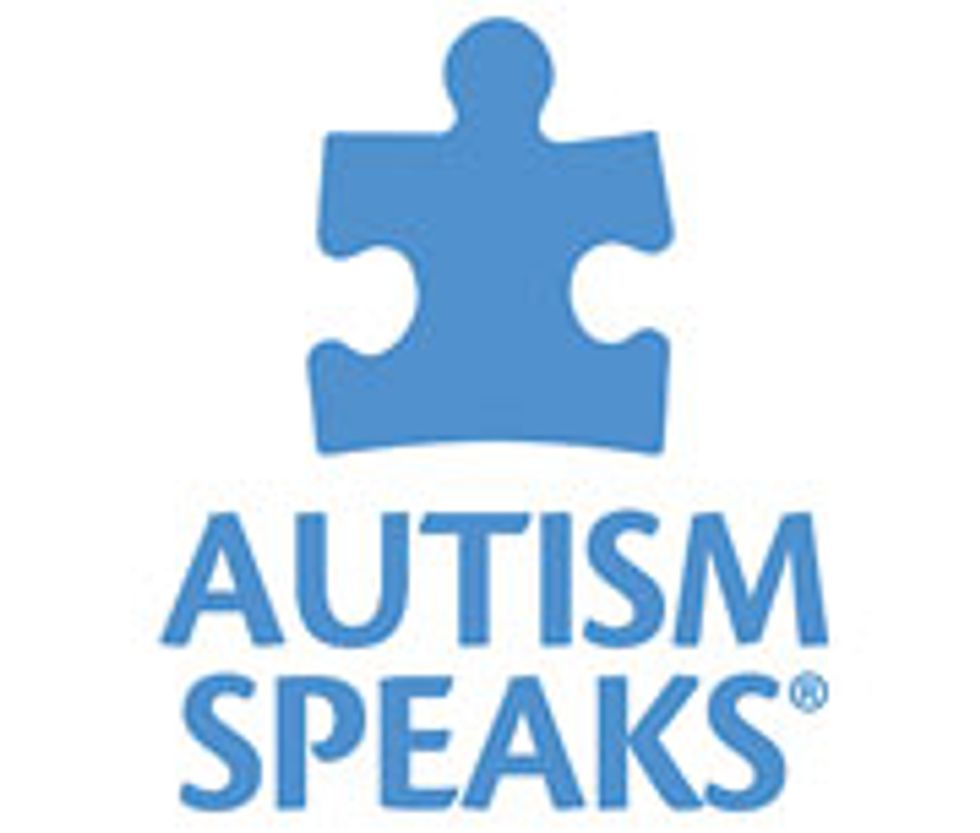Gut Bacteria that Can Change ASD Related Behaviors
Abstract
The American Museum of Natural History held an exhibit, “Inside You”, in which it allowed visitors to explore the inner workings of the human body. When viewing this exhibit, visitors were allowed to tour the human body and receive knowledge of the secrets within. Through the usage of videos and structural exhibits, the museum demonstrated how organs coexist with bacterias through the process of coevolution. Coevolution was demonstrated through the example of breast milk, which infants are unable to digest due to the complexity of the carbohydrates within the substance. However, because of the dominant species of bacteria within the infant, the child is able to consume the substance as it is then digested because of the many microbiomes. These same microbiomes are now thought to be a game changing species that can alter the way people with autism behave. According to the Autism Speaks article,“New Findings on Probiotics and Autism: What You Need to Know,” which refers to the article, “Microbial Reconstitution Reverses Maternal Diet-Induced Social and Synaptic Deficits in Offspring,” by neuroscientist Mauro Costa-Mattioli, the director of the Memory and Brain Research Center at Baylor College of Medicine, and Shelly Buffington, a postdoctoral fellow have found “how one strain of the probiotic Lactobacillus reuteri reduced some autism-like behaviors in mice – mice that had abnormally low levels of this microbe in their digestive tract”(Autism Speaks). The amount of animals with social deficits in offspring L. reuteri were found to be approximately nine times lower than for non deficit offsprings. This lacking in L. reuteri has caused many to question if an additional amount of L. reuteri will there be less people with autism in the future. Nonetheless, many are cautious, as more research is needed to be done on these findings and others worry of the ethics of conducting this research.
How Autism Occurs
There are various causes of autism from a deficient genes to genes that are seemingly normal, but develop a mutation which allows for a development of autism spectrum disorder (ASD). Mutations in the gene can be due to various elements, such as a chemical imbalance, viruses, or a lack of oxygen at birth. However, scientists are still unsure about what are the definite causes of autism are, as there are multiple causes rather than just one that can be targeted and hopefully plugged.
The most prevalent cause seems to be the linkage between an abnormal gene that develops into autism as there may be one of three to five (or more) genes that interacts in some way due to its environment causing a change in the development of the fetus. This disruption in the fetus impacts the brain development heavily, as the mutations occur with multiple genes in different combinations. Even so, not every autistic person has a change in their genetic makeup. Furthermore, this causes numerous complexity in this theory as many people without autism or autistic symptoms, there are don’t have genetic mutations that scientist have linked to ASD. Thus, from this development, the different genetic mutations taken to create the different aspects in ASD are varied amongst people. Although there are some mutations that may play a part in causing ASD in some people, this also contradicts that there are others with the same mutation without ASD.
Symptoms of ASD
There are specific warnings that caregivers and parents receive which indicates whether or not a child is on the spectrum. The main signs/symptoms associated with ASD in autistic children are the lack of communication and interactions with other people and the repetition of behaviors. Examples of this includes, the absence of speech, deficiency of acknowledgment of their surroundings, or scarcity of eye contact. Furthermore, social behavior that are indicators are preferring to play alone, seeming to be in their “own world,” doesn’t try to interact with parents, etc. Meanwhile repetition behaviors are the continuous action of one motion without the ability to stop and repeating words or phrases. These symptoms often appear as early as 12 months to 18 months, and in rare instances even earlier, however, most children are not diagnosed with ASD until the age of three (National Institute of Child Health and Human Development).
There are instances in which the child could have been an outgoing child to then suddenly regressing in the growth they’ve made through development. This ASD regression is seen when children have stopped using language to communicate, and are no longer interested in socializing or playing with others. Generally the age of regression is seen within children between the age one to two (National Institute of Child Health and Human Development). It is still not known as to why there is a regression or who is more likely to regress. Although, some children may not display mainstream symptoms of ASD, it is in the best interest of the parents of the child to have their child tested for ASD. Early signs in infants of autism is often seen by the distinctive brain activity, structure, and connections (National Institute of Child Health and Human Development) that the child may not display openly. According to the National Institute of Child Health and Human Development, the peculiar brain activity can be viewed as early as six months.
Changing Autism Related Behavior With Microbes
The human body houses approximately 100 trillion bacteria and trillions of microbes, which includes viruses, fungi, and other organisms. These are commonly known as the human microbiome. According to Rob Knight’s manuscript, “Defining the Human Microbiome,” “The human microbiome consists of the 10-100 trillion symbiotic microbial cells harbored by each person, primarily bacteria in the gut” (Knight). This cultivation of bacteria within the stomach happens because of the needed assistance to digest and process foods that enter the tract, as well as maintain the human immune system. This is seen with the infant and their mother’s breast milk. This excess of bacteria allows for the human microbiome to stabilize the individual's microbiome through the definition OTUs (Operational Taxonomic Units), which makes up the microbiota. The disruption of this process is in theory leads to human diseases such as inflammatory bowel disease, diabetes, antibiotic-resistant infection, etc. Thus, without this cultivation of bacteria and coevolution within the human organs, it is very unlikely that humans would have evolved as they have today.
When the disruption of OTUs occurs it can lead to a series of problems, especially in developing fetuses. A question that should be asked is if the deficit is due to the lacking of a possession in the amount of L. reuteri required for normal development, since there is disruption of OTUs in the microbiota that then evolves into autism for that person. In recent studies with the supplement L. reuteri, there was proven to be a significant improvement in sociability and preference for social confrontations in the mice offsprings. In addition, this microbiome not only could be influential in autism-related GI issues and behavioral symptoms, but has been found to be included in the body’s normal intestinal bacteria. This bacteria helps humans digest nutrients and communicate to the body to fight against disease that can inflict the immune system (Autism Speaks). According to Doctor Williams, the co-investigator in the Autism Speaks funded study who answers whether there is an association between intestinal bacteria and autism, “Studies in mice have shown that changes in the microbiome can affect brain development and function. As in the Baylor study, previous mouse studies have also shown an association between changes in microbiome and autism-like behaviors such as social avoidance and repetitive actions” (Autism Speaks: Dr. Wang). From Doctor Wang’s answer, it can only be assumed that microbes do play a part in the development of fetus’ brain development and how they socially interact with their surroundings, thus it can not be taken out of context that this may be one cause of autism. Being able to understand the microbiome difference between children who have autism and those who do not ,would allow for increased comprehension in how autism even develops, and allow for new adaptive therapeutic methods.
The Baylor study done by neuroscientist Mauro Costa-Mattioli, is similar to a study done in 2013, led by Autism Speaks Weatherstone Fellow Elaine Hsiao. Hsiao studied behaviors associated with autism and demonstrated the improvement of the mice who were feeding on Bacteroides fragilis, which is another intestinal bacterium. The result was that was shown to be an improvement in their sociability. Yet, with the 2016 study by Doctor Costa-Mattioli, it provided explanations in how the bacteria influences the brain development and the function of the brain. For example when there was more L. reuteri, there were higher levels of oxytocin, a hormone that is related to social development. The bacterium improves the brain’s ability to form new relationships with its receptors and stimulate intellect. However, there is a need to proceed with caution as there is not enough research to support such promising results in humans as in mice. Furthermore, there is still the lack of understanding of how the microbiome-brain interactions influences the symptoms of autism. This is elegantly stated in the Autism Speaks article, “For instance, we don’t know why the probiotic treatments used in these mouse studies improved social interaction, but failed to ease repetitive actions and signs of anxiety”(Autism Speaks: Doctor Williams). There is the chance of being able to prevent autism in children, yet still creating far worse development(s) that can be detrimental to not only them (the children), but their families as well.
The Downfalls of this Research
Even though the Baylor researchers were somewhat successful, their success should be taken with caution This experiment was conducted upon mice, whose brains are vastly different from the complexity of the human mind. In addition, the mice microbes are not the same as humans so what might work for mice, may not be as effective or at all for humans. Thus, there should not be an immediate leap to human treatments based on these results as there needs to be acknowledgment from both sides that the experiment dealt with an organism although similar to the human in genome makeup, is not human. Additionally, the human bacterium in autistic people has the strong possibility of being completely different from the mice studied in the research. For example, “some studies have found that levels of L. reuteri are much higher in the normal mouse microbiome than in the typical human microbiome”(Autism Speaks:Doctor Williams). Therefore, the conductive research has the potential of only being relevant for mice.
Therefore, there needs to be actual research done on human subjects to see whether or not the bacterium's do play an influential part in autism. Research done by the Autism Speaks-supported study on the role of microbiomes in autism, has come to the findings that “the microbiome differs between children with autism and those not affected by the condition … compare the microbiome between four groups of children: Those with autism and GI complaints, those with autism but no GI complaints, those with GI complaints but not autism, and finally children who have neither condition.We hope these studies will help us identify GI problems in children with autism – particularly those who don’t have the verbal skills to communicate their pain. We likewise hope that these studies will foster the development of new GI therapies that ease the anxiety and disruptive behaviors that commonly occur in children with autism – behaviors that may stem from microbiome-related alterations”(Autism Speaks:Doctor Williams). There is the potential for the research started by the Baylor researchers and the fellow from 2013 to expand and become something more, to even make a solution to the causes of autism. However, when the ethical aspects are brought into play, whether is the worry of there or not this change in the children can have negative feedback in comparison to the positive feedback that may be received.
Conclusion
Through the process of coevolution humans are allowed to survive in the harsh environment that are constantly changing due to climate change, new diseases, viruses and other attributions. The process of OTUs allows the formation of microbiota that evolves into the human microbiome, which has a cluster of genes and microbes. These microbiomes carry out their biology in protecting humans by stabilizing the immune system, and controlling whether or not a healthy human can spiral down to one of disease. However, with the disruption of this process brings about a series of complex issues, especially in the development of fetuses. This disruption may not only lead to a deficiency in L. reuteri, but can potentially lead to autism. The underdevelopment or mutation of genes within the fetus causes various problems, and one of the most prevalent is autism.
Without the ability to understand why there was a disruption in the process of OTUs, and the lack of particular microbes, it is unlikely there will be any full understanding as to why ASD occurs and thus what can be of greater influence to those with autism. Yet, if the microbiome is proven to be influential in the solving some aspects of ASD let it be known that there may be consequences for these results. As stated before, in the Autism Speaks article, although there was an improvement in social development there was still the constant repetitive actions and signs of anxiety. Overall, there is still a need to investigate this thesis, as there needs to be precautions in proceeding with experimentations, especially as some parents are desperate for results for their loved ones, without the thought of ethics into the equation.
References
Are Children Born with Autism, or Does It Develop Later? (n.d.). (2012, July 24). Retrieved December 12, 2017.
Autism Speaks. (n.d.). Retrieved December 14, 2017, from AutismSpeaks.org. Autism Speaks Logo.
Autism Therapies. (n.d.). Retrieved December 14, 2017, from Google.
Bama, M. (n.d.). Everything Worth Knowing About ... Autism Spectrum Disorder. Retrieved June 19, 2017, from Discover. Chart from author's article.
Morgan, X. C., & Huttenhower, C. (2012, December 27). Chapter 12: Human Microbiome Analysis. Retrieved December 12, 2017.
New findings on probiotics and autism: What you need to know. (n.d.). (2012, July 24). Retrieved December 12, 2017.
Ursell, L. K., Metcalf, J. L., Parfrey, L. W., & Knight, R. (2012, August). Defining the Human Microbiome. Retrieved December 12, 2017.
What are the symptoms of autism? (n.d.). Retrieved December 12, 2017.
When do children usually show symptoms of autism? (n.d.). Retrieved December 12, 2017.
For more information in regards to autism go to:






















